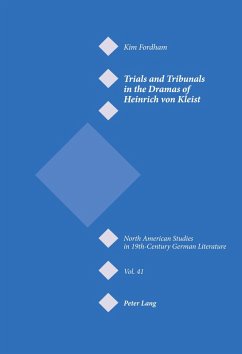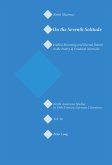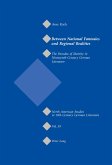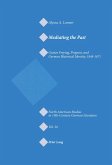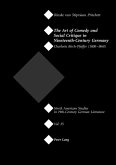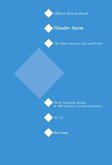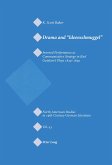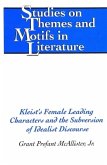What makes the trial so appealing as dramatic form? Why do we watch? Is it simply the quest for truth and justice? Or is it much more than that?
From the time of Sophocles, the court has fascinated audiences and dramatists alike. Kleist is no exception, as each of his dramas and many of his stories and anecdotes contain a trial of some sort from its most primitive form of hand-to-hand combat in the duel to more conventional legal proceedings in secular, military and ecclesiastical courts.
At trial, we desire, whether consciously or unconsciously, to have our own system of beliefs and behaviours affirmed rather than to attempt to achieve justice: self-interest prevails at the expense of truth and equity. The focus of this book is the tension between the restoration of dikê, the balance of natural order, and the pursuit of truth and justice as impetus behind the trial. With recourse to the concept of legal instrumentalism, which underscores this preference for order over justice in both the law and literature, the author examines Kleist's dramas to determine the extent to which those individuals in positions of power are able to manipulate the proceedings, seeking not justice and truth, but rather the validation of their own particular version of order. The trial, a tool generally thought to be designed to discover truth and to mete out justice, is used instead, in the hands of the powerful, as an instrument of control and degradation.
From the time of Sophocles, the court has fascinated audiences and dramatists alike. Kleist is no exception, as each of his dramas and many of his stories and anecdotes contain a trial of some sort from its most primitive form of hand-to-hand combat in the duel to more conventional legal proceedings in secular, military and ecclesiastical courts.
At trial, we desire, whether consciously or unconsciously, to have our own system of beliefs and behaviours affirmed rather than to attempt to achieve justice: self-interest prevails at the expense of truth and equity. The focus of this book is the tension between the restoration of dikê, the balance of natural order, and the pursuit of truth and justice as impetus behind the trial. With recourse to the concept of legal instrumentalism, which underscores this preference for order over justice in both the law and literature, the author examines Kleist's dramas to determine the extent to which those individuals in positions of power are able to manipulate the proceedings, seeking not justice and truth, but rather the validation of their own particular version of order. The trial, a tool generally thought to be designed to discover truth and to mete out justice, is used instead, in the hands of the powerful, as an instrument of control and degradation.

